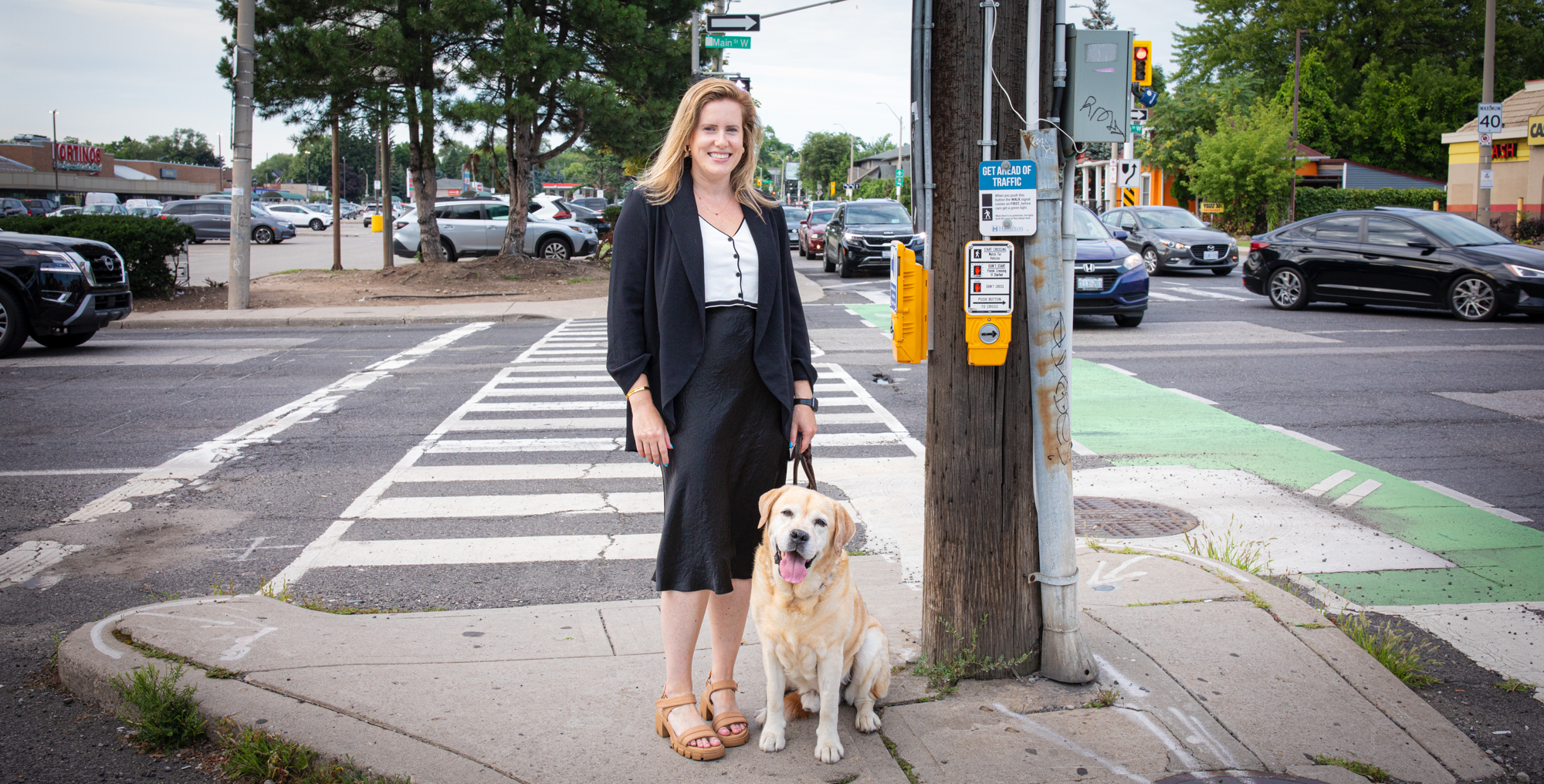Emma Harris

Program
PhD Population Medicine + One Health
Why did you choose to complete your graduate studies in your program at the University of Guelph?
I chose to complete my graduate studies in this program because I was looking to advance my career as a mature student. The PhD allows me to pursue academic credentials within my chosen field of veterinary medicine while gaining credibility and advancing my learning. OVC was the obvious choice for its world-renowned reputation; plus, I live nearby.
A bit about your path...
My path is not a linear one. My undergraduate and Master's degrees are in business and finance, but around the time of graduation, one of my dog's suffered an uncommon health complication. This led me to founding Healthy Pets, Canada's first application for veterinary telehealth, in 2016. Since then, I've completely immersed myself within the business and operations of veterinary medicine, as well as the non-profit and animal welfare space. I am now the COO of a translational medicine startup. Along the way, I have been fortunate to meet many champions for innovation within veterinary medicine, including the late Dr. Theresa Bernardo and Dr. Jeff Wichtel, who championed my PhD at OVC.
A bit about the work you are doing here...
I am excited about the opportunity to combine socioeconomic and demographic data with identified veterinary care deserts to understand how the impacts and effects of care deserts may be minimized, all in the aim of improving access to companion animal medicine generally. I really began thinking about access to care during my tenure at Vetster, where I served as an executive for over four years. Telemedicine is a great starting point for improving care access - but it's just one piece of the puzzle. My PhD allows me to explore what the other pieces are and how to apply them.
How do you think your research can potentially improve life?
The goal is to improve access to companion animal veterinary medicine. We need to understand where care deserts exist and why. From there, we can implement strategies to work with them and mitigate their negative effects. I hope this research leads consumers to have greater access to care (whether through tools like telemedicine or resources such as flexible billing, but also just more knowledge around how and where to access care and why), and reduces some of the burden that currently rests on veterinary care professionals' shoulders as a result of needing to be as available as possible. The ability for care providers to explore new operational efficiencies is expected to be an outcome of this research.
Tell us about your advisor
My PhD would not be possible without my advisor, Dr. David Pearl. Dr. Pearl is exceptionally supportive, and has made my PhD feasible as a mother of three under three; the most recent of whom was born during my last final exam season. Because of David's support, I have not paused my studies, but rather continued through with a newborn. David is flexible and understanding, and provides the right balance of encouragement and direction.
What do you like best about U of G campus?
How gorgeous it is, and also that it's compact and feels like a true community.
What's it like to be a graduate student at Guelph
Being a graduate student at Guelph is a great experience. Despite being a mature student, I've made a great friend group. The students, staff and professors are welcoming, competent and kind. There's a ton of opportunity to get as involved as desired.
What do you plan to do after graduation?
After graduation I will probably continue what I've been doing for the last 8 years: supporting and building new ventures that seek to improve veterinary medicine. I would like to apply some of this industry experience with academic and teaching experience as well.
Tell us something about you, beyond being a grad student.
I have three-year-old twins, a one-year-old, two Labrador Retrievers, and a Norwegian Forest Cat.